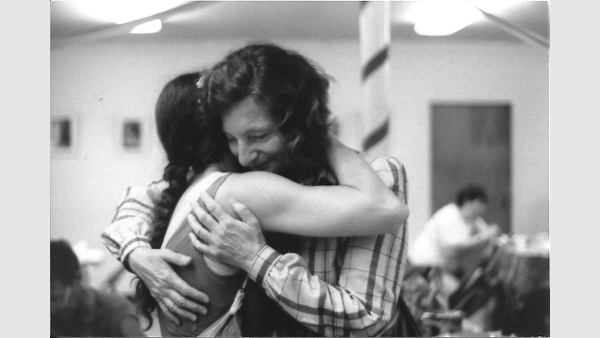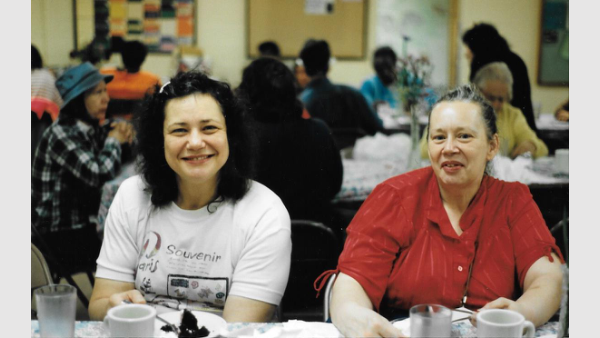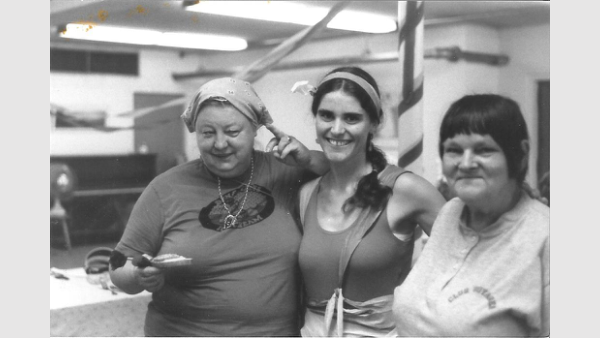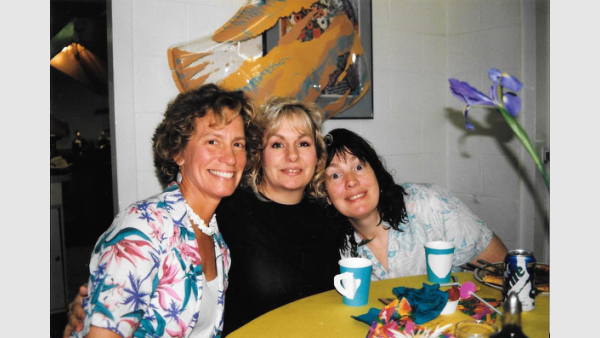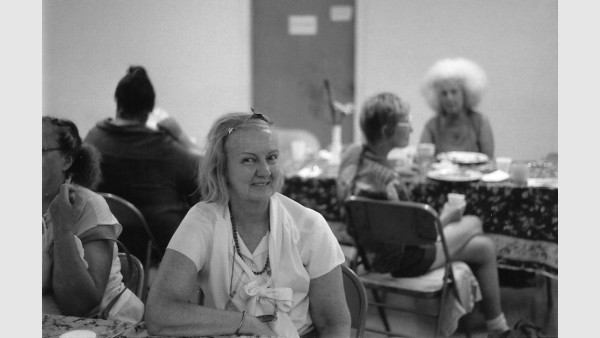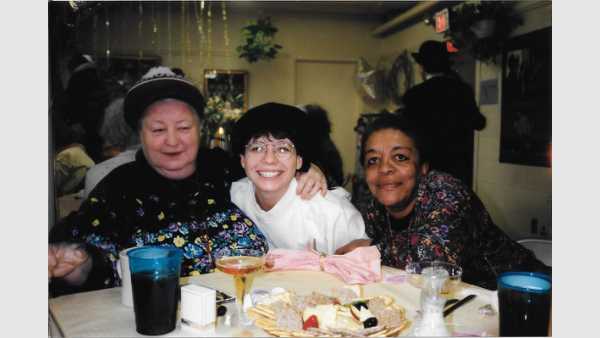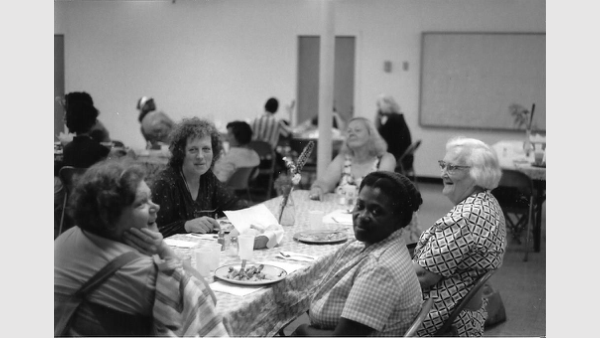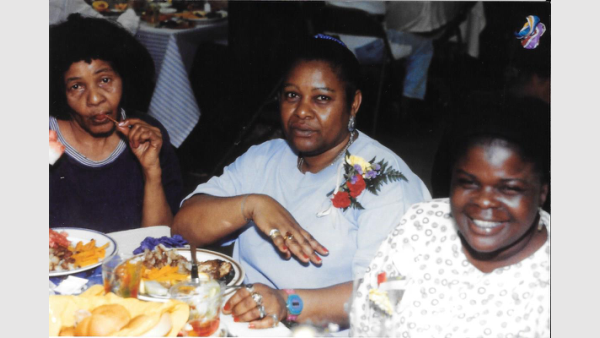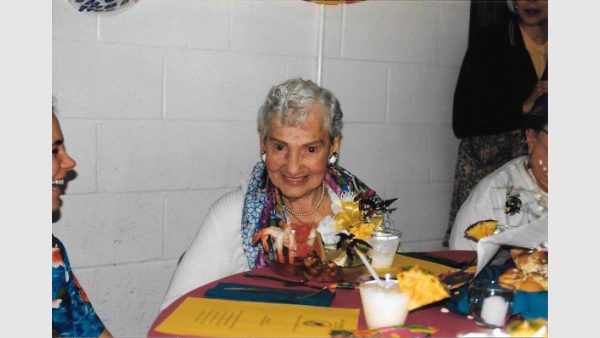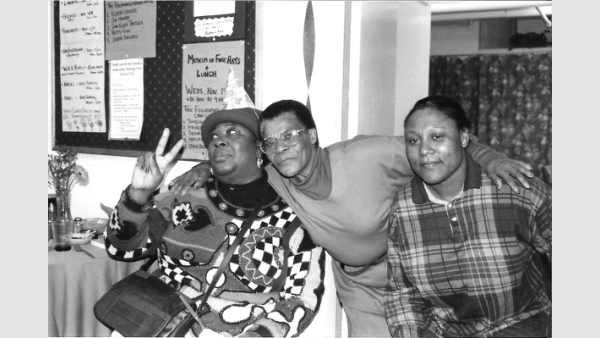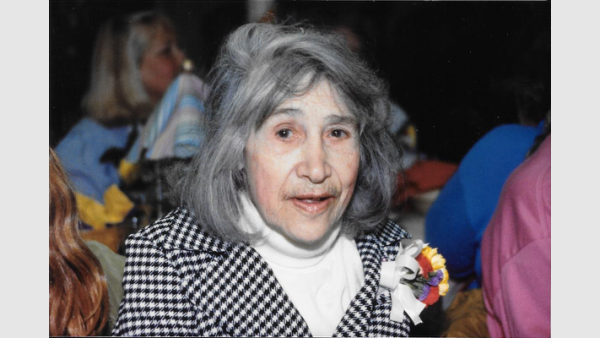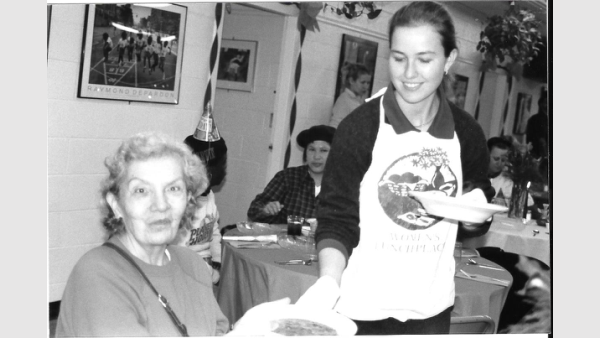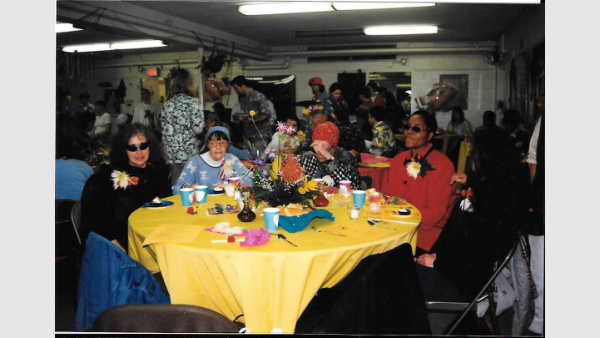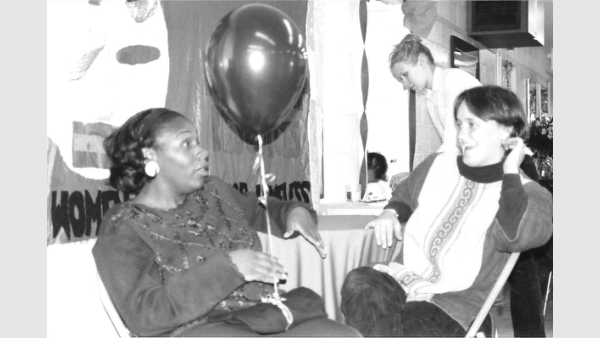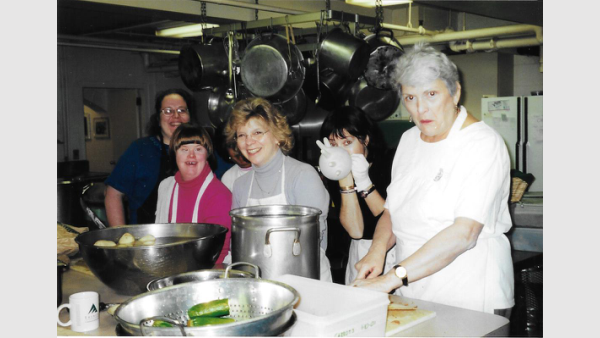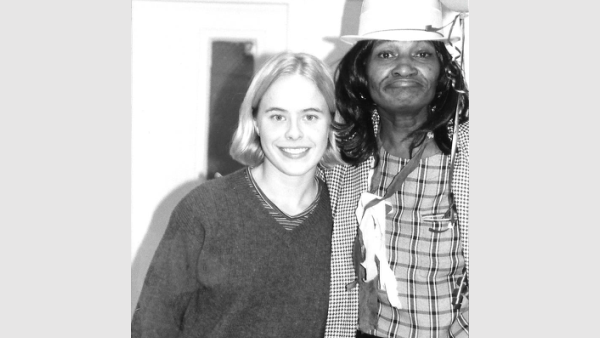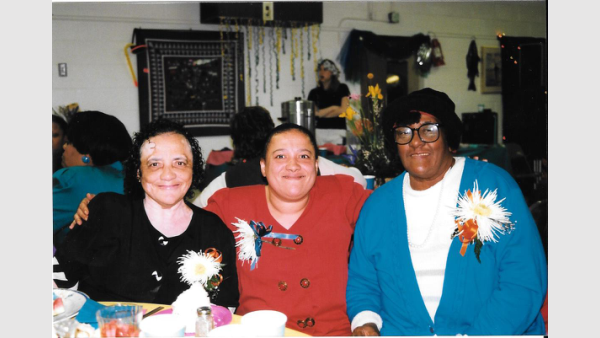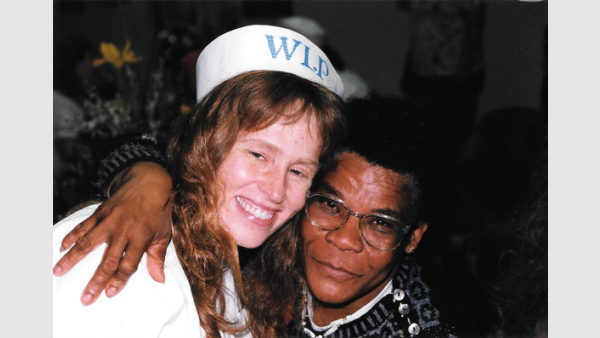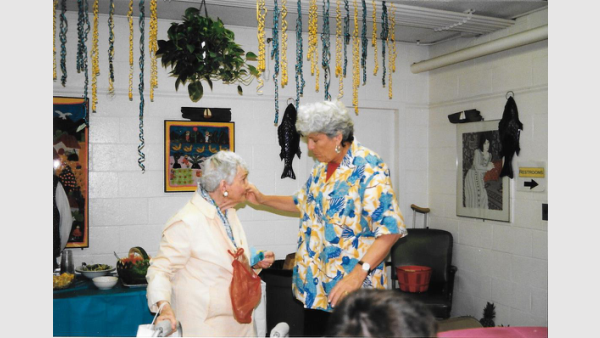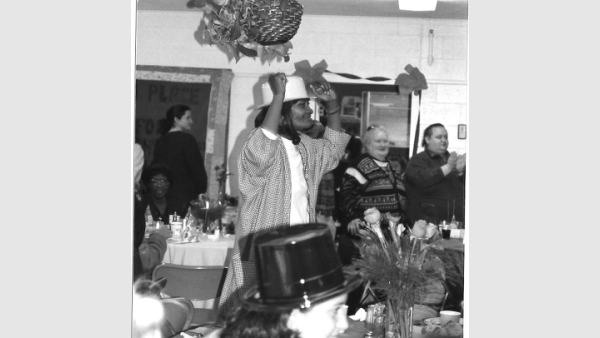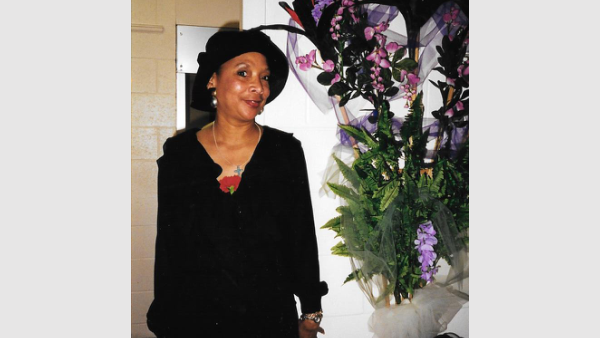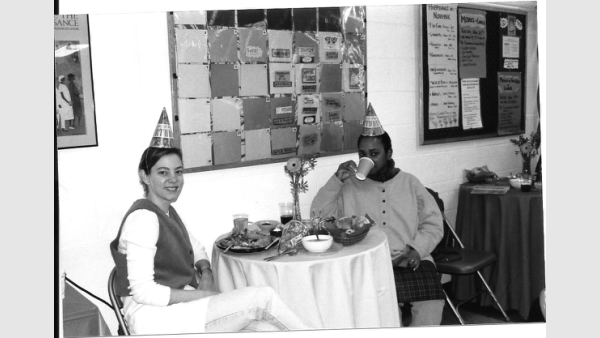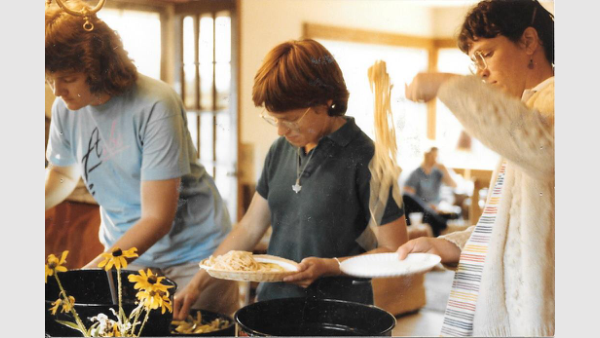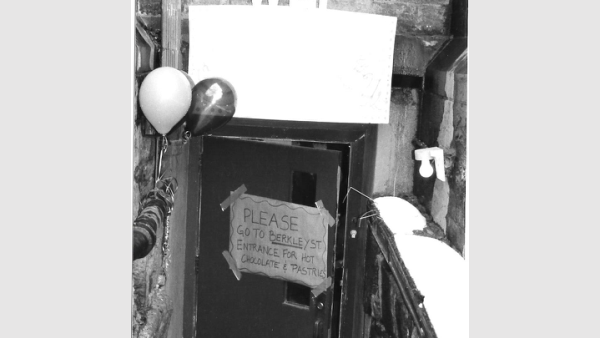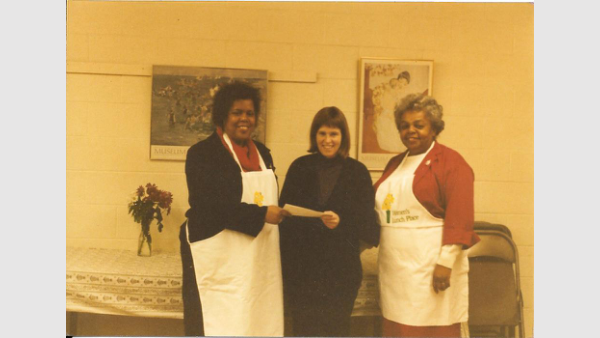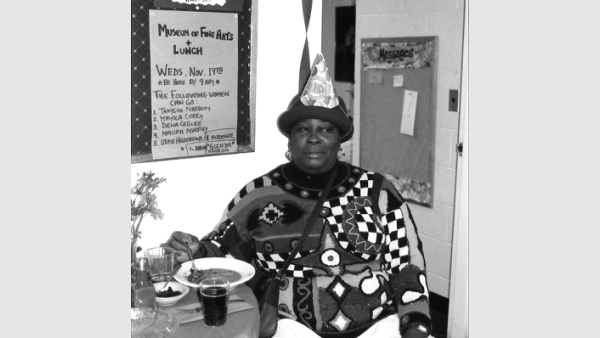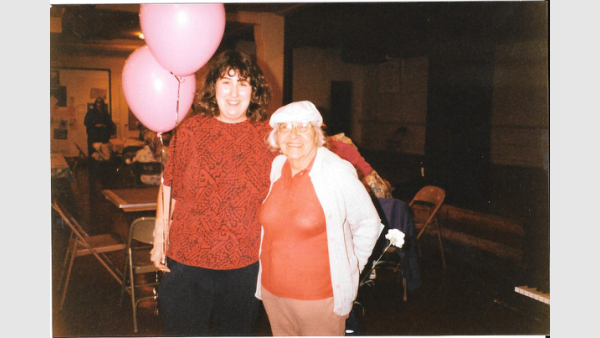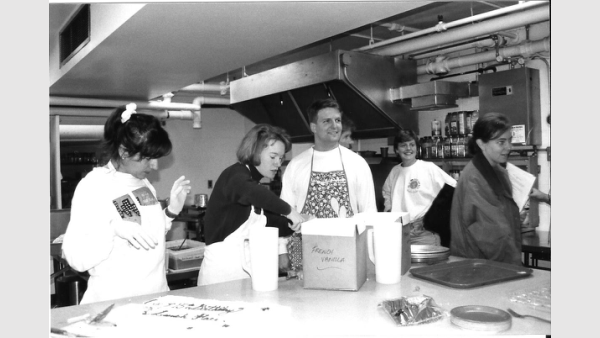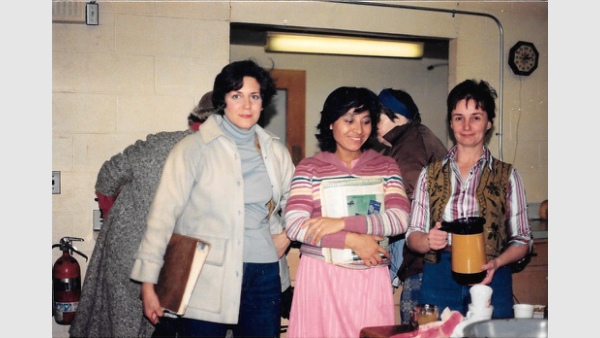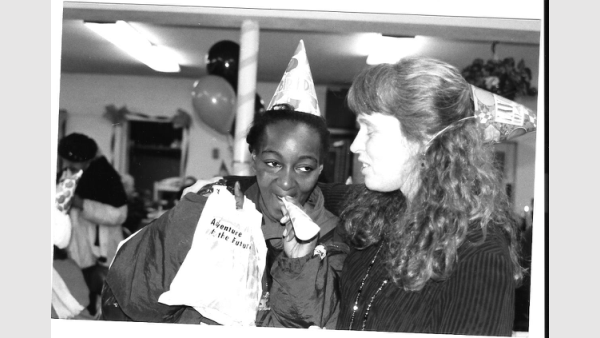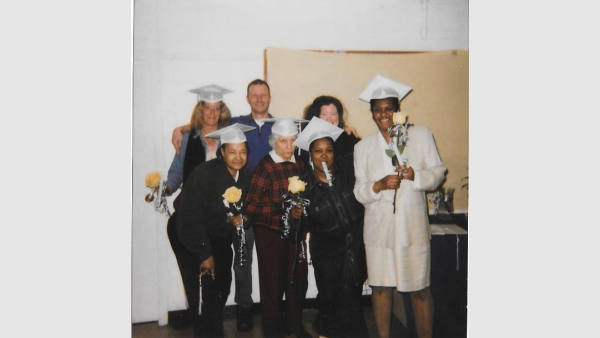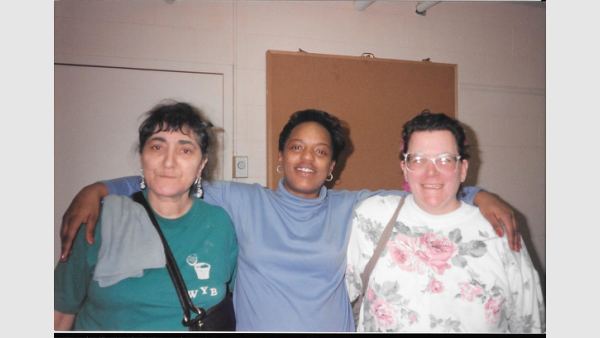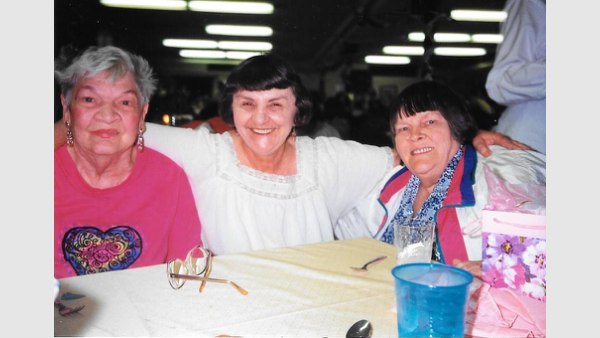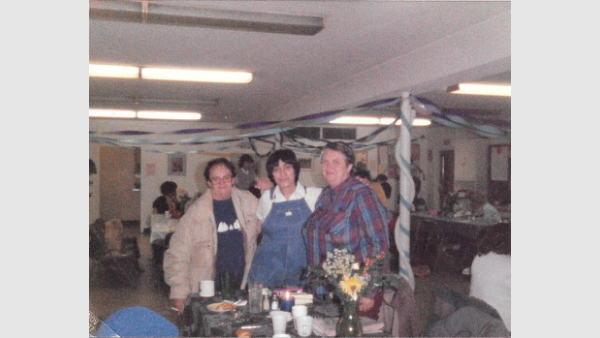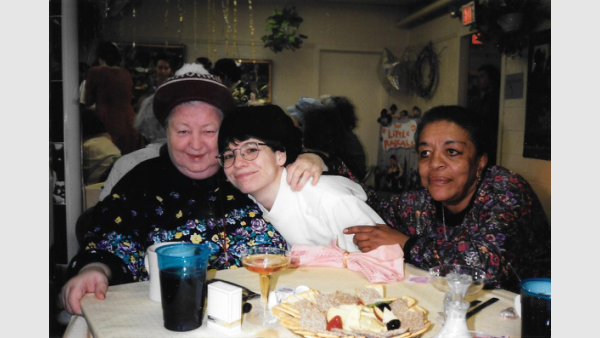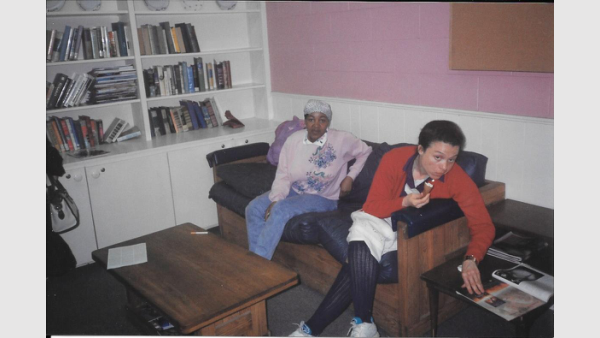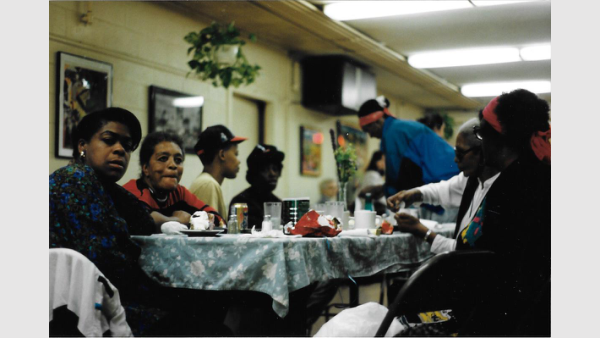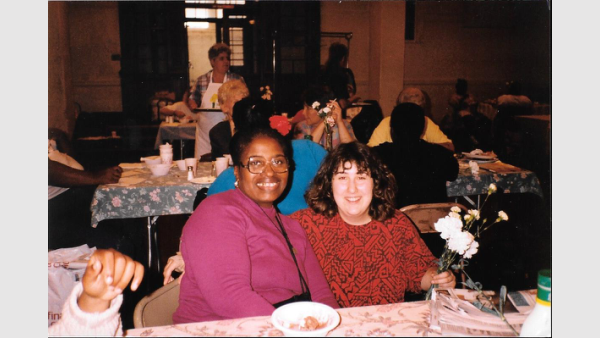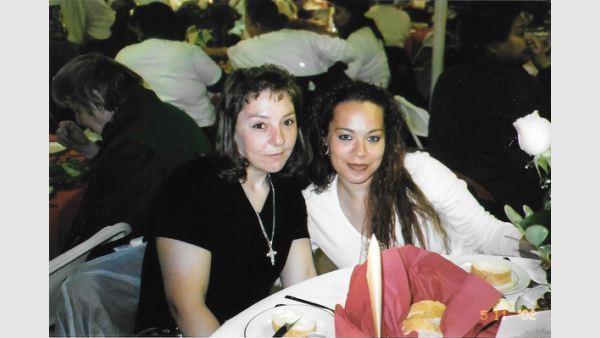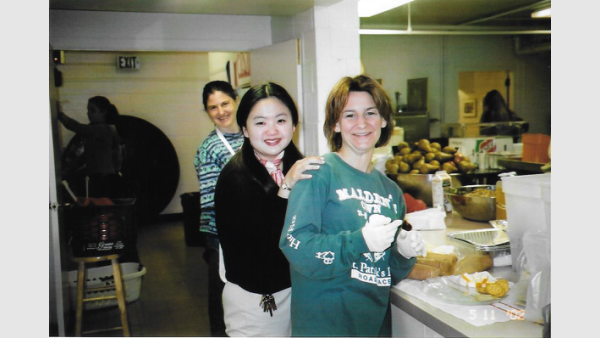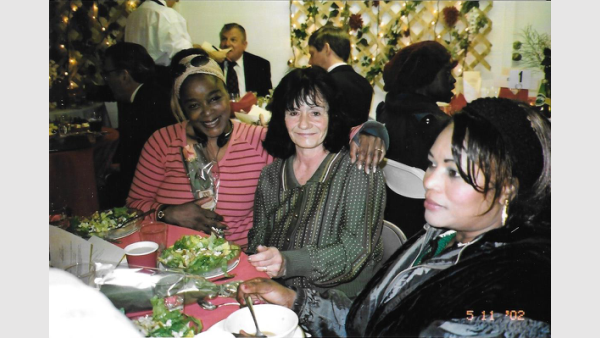History of Women's Lunch Place
Women's Lunch Place (WLP) was founded in 1982 by Jane Alexander and Eileen Reilly, whose commitment to homeless women began with their work in overnight shelters in Boston. In these large institutions, Jane and Eileen came to understand many of the paths that led women into homelessness, among them: domestic violence, sexual abuse, family deterioration, mental illness, substance use disorders, and discrimination.
At the time, homelessness was increasing dramatically, and crowded overnight shelters began to close during the day. Although there were some places for men to go during waking hours, Jane and Eileen consistently saw women on the streets with no safe place to have a meal and rest.
Jane and Eileen’s vision was to create a welcoming place where women who were homeless or living in poverty could find refuge, a good meal, and a community where they belonged. The goal was to provide support and nourishment in an atmosphere that was as homelike as possible.
They imagined something different from large homeless shelters: no formal intake, no lines, few rules, and a kitchen open for the women to participate in the creation of a meal. Small and large donations of time and financial resources from sisters, friends, and colleagues helped make their vision a reality.
Jane and Eileen secured space in the basement of the Church of the Covenant in the Back Bay and WLP has been there ever since. On November 15, 1982, they greeted eight women for lunch in a dining room set with China plates and silverware on tables with fresh flowers. No questions were asked; guests were offered a warm welcome, a hearty meal, and encouragement to return. These qualities remain consistent today.
At the start, WLP was only open three days a week for lunch. As word spread among the women on the street, the number of guests at WLP grew and the need for additional services became apparent. In response to that need, the program expanded: a fourth day of service was added in 1983, breakfast in 1985, and a fifth day in 1986.
In 1990, the position of Outreach and Support Coordinator was created to identify and meet specific, individual needs. In the fall of 1991, Women's Lunch Place completed a year of major renovations and the addition of seven rooms: an advocacy room, a nap room, a children's room, a sitting room, a clothing room, a shower, and a laundry room.
In 1992, a formerly homeless guest was hired as the first WLP Advocate. She used knowledge from her lived experience to provide case management and advocacy services to WLP guests. Three years later, a comprehensive Advocacy and Legal Assistance Program was formalized, bringing support for housing search, access to public benefits, and legal assistance to the forefront of WLP operations.
In 1996, Women's Lunch Place added a sixth day of service. Two years later, an office was converted into a dedicated space for the burgeoning Advocacy Program. In 2000, hours were again expanded, giving the women an additional hour and a half each day to congregate inside and find the resources they needed.
A major capital campaign and renovation of the shelter space was undertaken in 2011, expanding laundry and shower capacity, and adding medical suites, a library, offices, and a meeting space on the 3rd and 4th floors of the church.
In September 2021, the Board developed and adopted a Strategic Plan based on a proactive approach to meet the evolving needs in our community and prevent or limit the repercussions of women falling into crisis. The Strategic Plan focused on building new programs and collaborations in four key areas:
Housing – expand access to housing opportunities while increasing critical stabilization services
Wellness – increase guest engagement to address their physical and emotional well-being
Healthy Meals – increase access to high-quality meals and to further incorporate nutritional best practices
Hospitals – increase access to physical and mental health services.
Today, WLP’s kitchen serves two healthy meals six days a week and we continue to refine our robust direct care, advocacy, and wellness programs. On-site, free medical services are offered through a partnership with the Boston Health Care for the Homeless Program.
Throughout a history of change and growth, the main priority of Women’s Lunch Place has never shifted – we continue to meet each guest where she is and treat her with dignity and respect.

